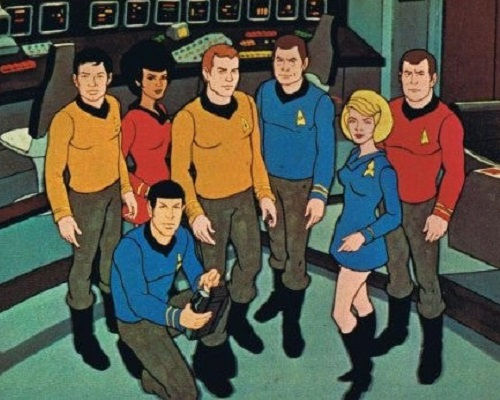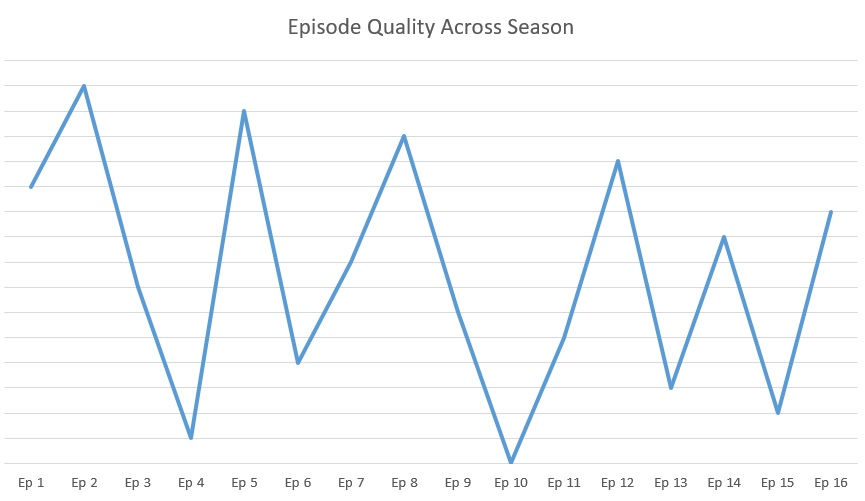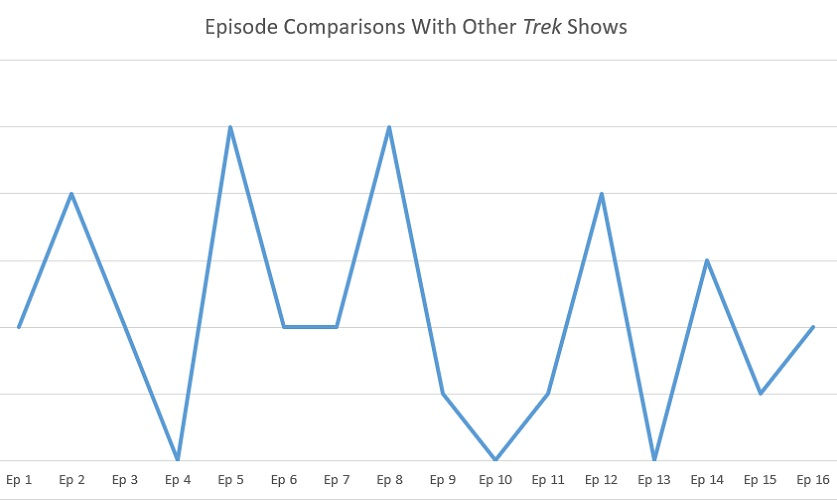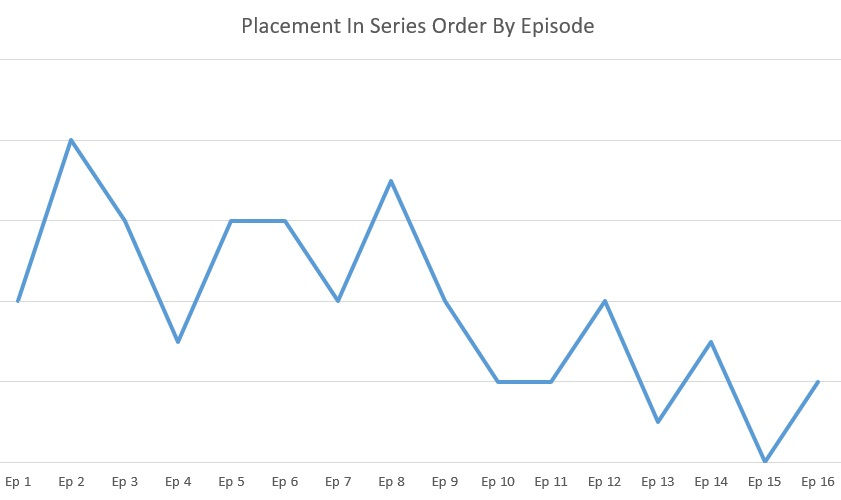2.1 "You Know, For Kids"
- Ric Crossman
- Mar 22, 2022
- 7 min read
The Animated Series Season 1 Retrospective

Let’s look at this one through a new lens.
If You Don’t Love Something, Set It Free
Biased though I clearly am, I’d argue that – broadly speaking – the Infinite Diversity, Finite Combinations approach has been a success. I don’t mean a success in the sense that more than six people read it, obviously. I mean it in the sense that the alternative perspective it offers in comparison to most rewatches seems to generate some fun new theories, as well as enabling the shooting down of some bad ones.
That doesn’t mean this parallel approach is without its issues. In particular, it may have led me to do The Animated Series dirty.
I’m not alone in this, of course. Dismissing TAS as an irrelevant curio is so foundational to the Trek experience even Gene Roddenberry tried to do it [1]. My hope was that by rejecting this approach, and treating the show as being equivalent to every other Trek show, I could help expand the focus of Trek criticism. I also wanted to make the point that, to the extent that what counts as “canon” is of any relevance in the first place, it makes little sense to draw the line at “animated and silly”, rather than, say, suggesting a woman secretly enjoyed her superior officer attempting to rape her.
Well, the road to Gre’thor is paved with good intentions [2]. Having rewatched the first season of TAS in preparation for this post [3], it’s become clear that trying to treat its episodes as comparable to forty-to-fifty-minute slices of drama has led me down a blind alley. To be more specific, I may have focussed too much on the nature of the transition between exposing celluloid and drawing on it, and too little on what actually came out on the other side.
So, for the duration of this post, let’s free this show from the burden I and so many others have placed upon it (until we reach the graphs, of course). What happens to The Animated Series when you release it from comparison to the show it followed on from?
The answer is not terribly surprising: cut away the intertwined ballast of history and expectation, and the Enterprise’s animated adventures fare significantly better.
Take the issues with pacing that I’ve mentioned several times over the course of the season. I hold to my argument that there are issues here stemming from writers used to the fifty-minute format struggling with the twenty-three minute variety. In truth, though, the fact a lot of episodes struggle with pace matters less when you know that if you’re not digging one particular sequence, there’ll be another coming along in a minute or two, and a whole new story within the next twenty minutes.
Even more importantly, the noticeable tonal disconnect between this show and the one it’s based on matters less when you can appreciate the mood it has chosen for itself. Not that the show ever finds it necessary to stick to a single tone (as opposed to a single shade, but we’ll come to that). Instead, it opts for more of an overarching philosophy – let’s have as much fun in as many sandpits as we can, in as short a time as possible. Starfleet by sugar-rush.
And mostly, that works just fine. I can’t be alone in thinking so, either. I joked in my post on “Jihad” that the show that won an Emmy for Outstanding Entertainment – Children Series would be so happy to have a character constantly trying to ride Kirk like an Iowa mustang. Critically though, I could only make the joke in the first place because this show won an Emmy for Outstanding Entertainment – Children Series [4]. Clearly it was doing something right.
Gritty In Pink
Let’s take the lead of the Emmy ballots, then, and consider where thinking of this as a children’s show gets us. I should note up-front that I don’t actually care that Lou Scheimer, the producer of the show who actually accepted the award on stage, thought their win was “inappropriate” because he considered TAS to be aimed at families rather than just kids. I got bored of that argument six minutes after the new Doctor Who aired. Ironically, defining a children’s show as something not intended for or enjoyable by adults is pretty childish in itself.
As terrible a definition of children’s show as “adult’s shouldn’t like it” is, though, I don’t actually have an obviously superior alternative. Since doubtless actual experts on this exist, I don’t want to stick my neck out too far, but I’d suspect any attempt to nail down the precise dimensions of children’s television runs the risk of being reductionist, and (more irony!) probably patronising as well. Either way, aside from noting the only TAS episode I saw as a child was “The Lorelei Signal”, and I enjoyed it rather more at the time than I do now, I don’t actually have any useful insights on how focussing on a younger audience should lead to a change of structure. My time as a teacher suggests the shorter run-time might help in terms of holding children’s attention, but even that isn’t necessarily the case – it’s not like kids can’t sit through a Disney film.
What I guess I can talk about, though, is influence. I’m not going to claim a few weeks of dipping into the theories of how young children learn (when I did my PGCE, all of 20 years ago) makes me much of an expert. That said, my standard approach of griping about an episode’s politics (or, less often, praising them) necessarily takes on a new dimension if we’re talking about contributions to a person’s development, rather than what you’re bouncing off them once they’ve already grown up to become awful. It becomes far more important to be repeatedly stating the obvious (or what should be obvious), for instance. On those terms, this season has plenty to recommend it. The degree to which sentient life is accepted on its own terms, whatever it looks like, is a fine start. The fact Uhura often gets more to do in these fun-size episodes than she did in the full-length originals is also a big plus.
While we’re on the subject of gender relations, actually, perhaps we should talk about all the pink. From Klingons to Kzinti cruisers, and clothed cats of all descriptions, the colour is everywhere here. According to legend, director Hal Sutherland was colour-blind, and thereby kept mistaking pink for grey (though this theory suggests he thought the tribbles in episode 5 were all gunmetal grey, and he didn’t think it worthy of comment). Whatever the reason, though, the preponderance of the shade gives The Animated Series a pretty much unique colour palette as science-fiction goes. As television goes, actually.
Looking like almost nothing else on TV is something worth boasting about in any case, but the show’s serendipitous disconnecting of pink from femininity makes this show one of the most visually progressive shows ever broadcast – a ragged hole blown in the walls of the gender ghetto. Put another way, a children’s show that refuses to ignore that the colour exists – unless a teenage girl needs to be coded as insufficiently interesting – demonstrates a maturity depressingly few television shows aimed at any audience can match.
I’m not saying every potential impact the show might have on a young person’s development is a positive one. The fact Nurse Chapel’s attempt to dose Spock with hyper-Rohypnol is criticised only in terms of the drug being not worth the effort of spiking someone with, in particular, seems like a messed-up message to deliver to kids – though I guess we still teach “A Midsummer Night’s Dream” in schools, so there’s plenty of blame to go around on that one. “The Lorelei Signal” is similarly problematic, this time because it insists the differences between gender are more significant than those between species.
That said, the fact these are the two largest stumbling-blocks in the entire season does at least make it easy to diagnose the problem, and propose what the solution might once have been. Trek is at its best when it considers what the future might be, whether that’s showing us what is possible when we leave our prejudices and assumptions behind, or interrogating what might go wrong if we cling to those properties as we spread to the stars. Repackaging Renaissance playwrights or pre-German mythology isn’t going to cut it. The worst way to teach a child is to pretend nothing ever changes. That there exists universal constants from which they can never escape. That what is relevant to them can be defined exclusively in terms of what was relevant to those that came before them.
On its best days, The Animated Series understood this, presenting a view to the future, and way to imagine the world anew. More to the point, it often did this more successfully than the show it was based on. In all my discussions of what had to be thrown aside in the shrinking of the franchise’s budget and run-time, I should have borne in mind what was retained.
In terms of the structure of IDFC, the first season of TAS ends only a fraction above Enterprise in terms of the opening years of the six shows covered. I think, though, that this says more about my format than it does about its own. The animated adventures of the USS Enterprise deserved, and still deserves, better than that.
[1] He made an exception for DC Fontana, of course, because she was simply too good to ignore. It was an extremely unhappy coincidence that I first drafted this post in the week that Fontana passed away. Writing the best episode of this entire season is only a tiny fraction of the total debt Trek owes to her.
[2] Just kidding. It’s paved with the gravestones of pacifists and social reformers. Seriously, kids. Just say “NO” to imperialistic warrior codes.
[3] Which means I’ve now seen “Mudd’s Passion” three wretched times. I hope you appreciate what I go through for you.
[4] This was admittedly awarded to the second season, rather than the first, but given all 22 episodes were ordered as a single block, the win for “How Sharper Than A Serpent’s Tooth” can be taken as a comment on the show’s quality throughout its run.
Episode Rankings
1. Yesteryear
6. The Jihad
12. The Survivor
16. Mudd’s Passion



Rewatch List
(Underlined episodes are particularly good.)
Beyond The Farthest Star
Yesteryear
One Of Our Planets Is Missing
More Tribbles, More Troubles
The Infinite Vulcan
The Magicks Of Megas-Tu
Once Upon A Planet
The Terratin Incident
The Time Trap
The Slaver Weapon
Jihad




Comments